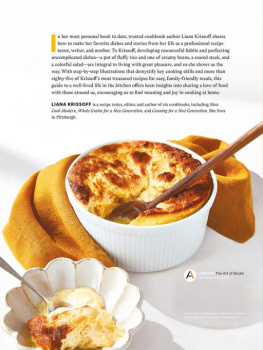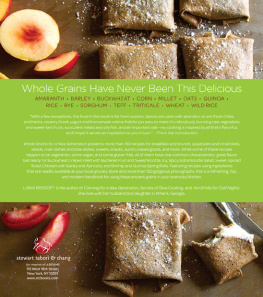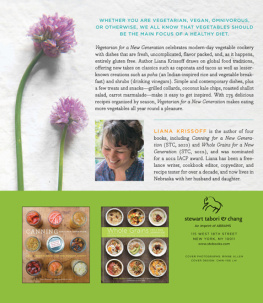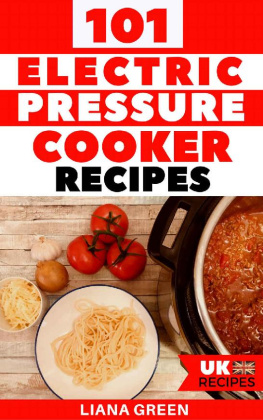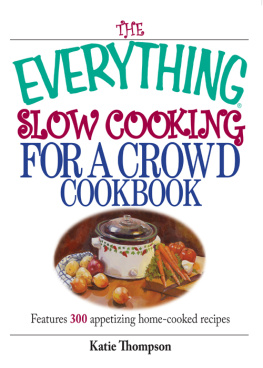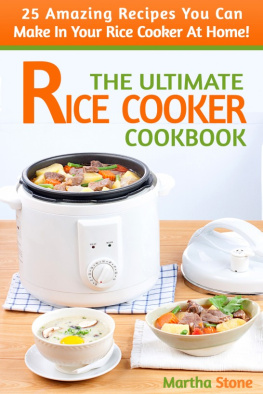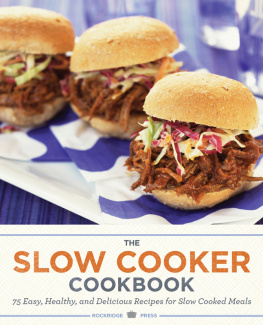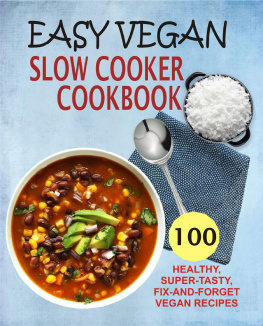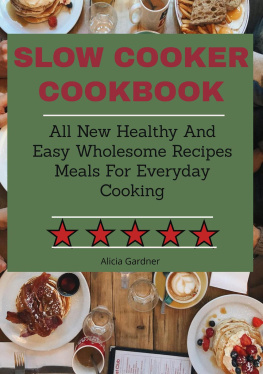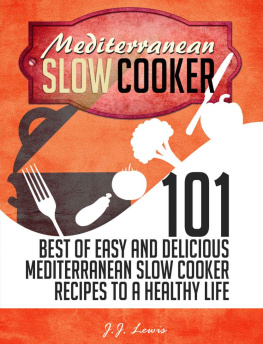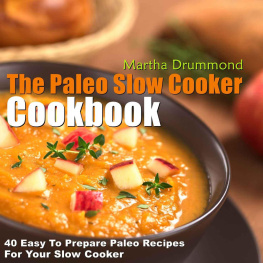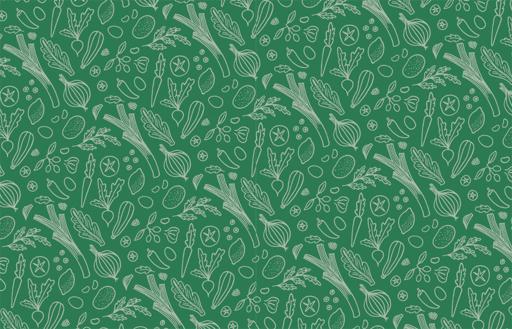



Contents
Introduction
A Home Food Manifesto:
Managing an active home kitchen is little more than a balancing of abundance and scarcity. Use, preserve, and share when you can. Enjoy cooking with the best ingredients you can obtain, but know that pleasure and nourishment are not dependent on how much you can spend for them. Use the right tool for each task, but refrain from assembling a life overflowing with unnecessaries.
Community can be built around home cooking and larger food systems. Unless youre a professional cook, I dont think you have to know your farmer or befriend your local butcher, but do try to know your neighbors and learn about how your ingredients are produced.
Flexibility is survival. Adaptation is good. Respect your present circumstances as much as you respect abstract ideas of tradition or the pronouncements of food experts.
Good home cookslike good people in generalare curious. They dont just keep an open mind when new foods or techniques are presented to them, but seek them out. They ask questions and want to learn.
Authentic is a word that can be applied to whatever youre cooking or eating, and so it is essentially meaningless in the realm of food.
Anyone, of any age, can gain competence as a cook if theyre allowed to make (age-appropriate, safe) mistakes. Be patient with yourself and the new cooks youre helping in the kitchen; most mistakes are edible or at least fixable, and all contribute to a cooks education.
When I consider what it means to be confident in the kitchen, to understand ingredients, to enjoy cooking and eating, and to be capable of sustaining yourself and your friends and family, the kinds of skills that come to mind now are considerably different from those that I might have considered important just a few years ago. Even before the stay-at-home orders went into effect in response to the coronavirus pandemic in 2020, Id found myself more attuned to a general sense of extreme thrift. Living in Appalachia, learning about the regions long history of exploitation and struggle, reading old cookbooks of make-do recipes, helping fill boxes at the food pantry and realizing how many adults and children a single box was supposed to feed for a week (and then being told families are allowed only one box every four or six weeks): its all revealed my own past efforts at efficiency in the kitchen to be frivolous and somewhat stupid. Im sure moving to this part of the country changed how I cook, and then the coronavirus changed things further as I learned how to better use what we had on hand, repurpose, improvise more than Id had to before. Full shutdown in West Virginia lasted only about a month and a half, but what I learned in that time (and throughout the summer and fall, as we continued to stay home as much as possible anyway) will stick with me forever, and its partly why what began as a sweet kitchen handbook is now a manifesto.
How to achieve the perfect dice? Who cares. How to score the best bunch of carrots at the farmers market? You have carrots? Youre golden. How to be a member of a community, on the other hand, how to practice generosity with the sustenance we have, how to be curious about new foods while also appreciating what we already know and love? Those are the true essentials, the skills we should try to teach kids as early as possibleand learn ourselves if we havent already. Im still working on the community part myself, in all honesty. Its hard when the systems we live under and the built environments that surround us are designed in ways that discourage solidarity, from anti-labor laws and norms upholding long workdays that consume our leisure time, to elementary-school consolidation and zoning that favors giant houses and vast lawns to separate them, to highway projects that slice up neighborhoods. Foodtalking about it, sharing ithas been a way for me to try to cut through all that and form relationships, some casual and fleeting (but still very necessary), some deep and permanent.
Just a couple of months ago, in the middle of writing this bookokay, not quite in the middle; in the midst, lets say, of starting this bookmy family and I moved from Morgantown, West Virginia, a small college town in the hills, to a row house in the heart of Pittsburgh. People walk past our front windows almost every minute of the day, and I dont know any of them. My (over-?) reliance on food to spark early social engagement is all the more obvious when neighborly deliveries of baked goods to and from virtual strangers are made even more awkward by a pandemic, of all things. There are other ways to meet people, of course; Im just not very good at them, and I suspect Im not alone.
Americans move a lot, an average of about twelve moves in a lifetimetwo or three times the rates in Europe. As part of a system in which GDP growth is valued above all, its almost impossible to stay in place, though the number of people moving in the United States each year has been declining from its height during the postwar boom of the 1950s as the workforce ages; salaries flatten out, making the expense and hassle of moving a household less appealing; and jobs become more homogenous and less tied to specific places. Maybe, too, in times of uncertainty like these, when the possibility that growth wont or even shouldnt, in fact, continue its historical upward trend in this country begins to dawn on some of us, the idea of making a home in one place, preferably close to good friends and family, becomes more attractive. It certainly feels that way to me as I sense my own momentum slowing down on this move, my fourteenth, though Ill fully admit that it might just be that Im getting old and tired of packing and unpacking kitchen supplies.
I have no idea whether my daughter will settle down somewhere as a young adult or continue to move around a lot, but I want her (and you, reader) to believe that one can make community wherever one is. Having the skills you need to cook and appreciate and share food with people you dont know well yet is a relatively straightforward way to do that. If you can cook well, you can help others, and if you can help others, they can help you. When I finish writing this, Im going to unpack the mixer, make a big batch of ginger-molasses cookies, put on a mask, and drop off a container of them for our next-door neighbors, who moved in a couple of weeks after we did.
In an essay with nothing explicit to say about cooking that nevertheless clarified and deepened my own sense of how I want to be as a home cook, environmental historian William Cronon offers thoughts on the tricky question of what constitutes a liberal education. The liberally educated, he says, nurture and empower the people around them. They understand that they belong to a community whose prosperity and well-being are crucial to their own, and they help that community flourish by making the success of others possible. I like to think of a cooks education in a similar way, and I appreciate that Cronon talks of communities flourishing, not just surviving.
When I was a kid, I was fascinated by the literature of survival: Jack London and Laura Ingalls Wilder, Melville and
Next page
